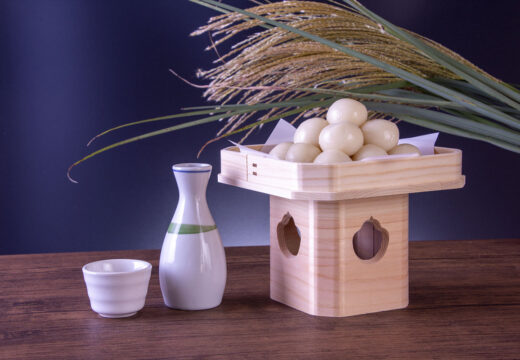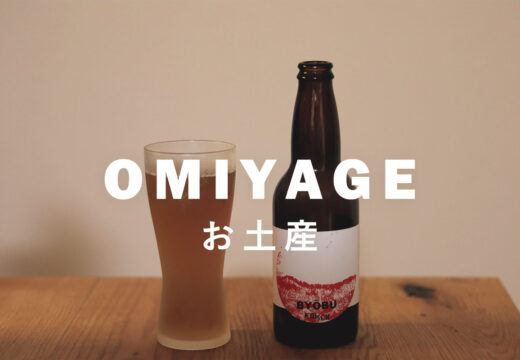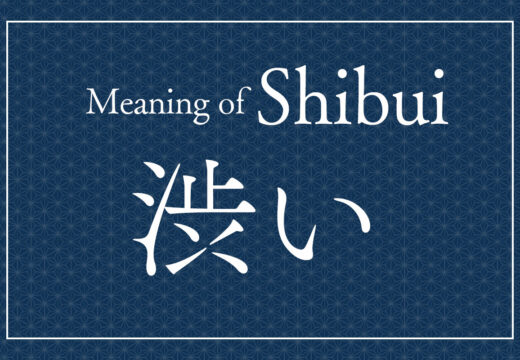
The “Tsuyu” or rainy season refers to a period in Japan and some parts of East Asia where it rains continuously for a long time from around June to July through September.
In Japan, it is roughly the image of June.
How do you write Tsuyu in kanji?
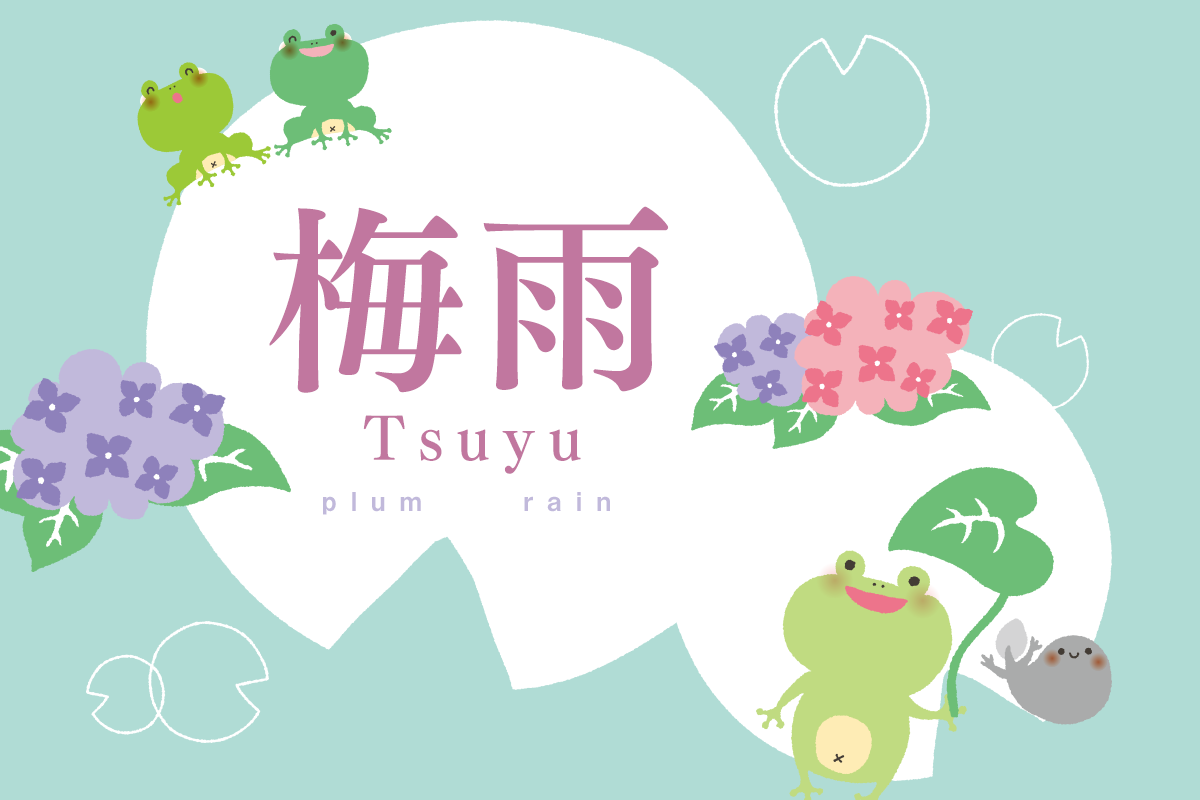
Tsuyu is written “梅雨” in kanji.
梅 means plum.雨 is rain.”Why the plum rain?” you may wonder.
There are various theories, but it seems that this Kanji is used because the ume fruit grows around June.
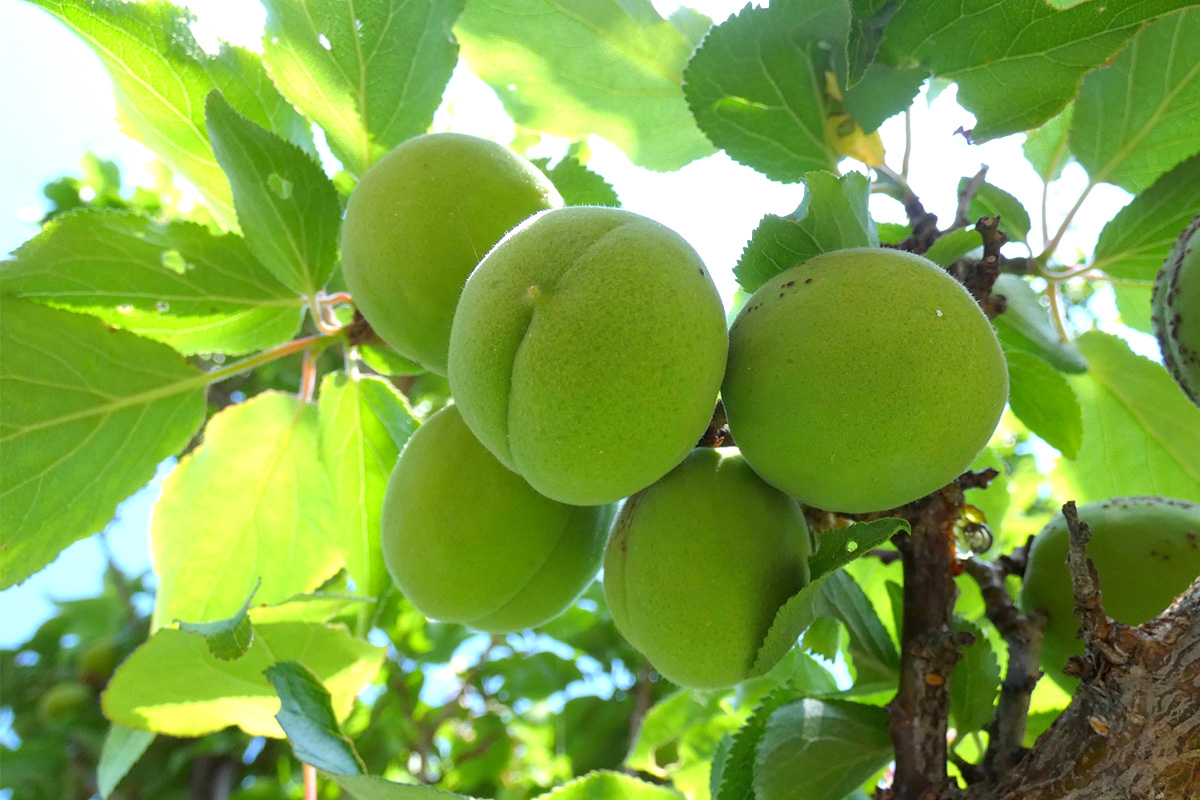
In June, we also make Umeshu(梅酒,plum wine) or Ume syrup at home with plum fruits.
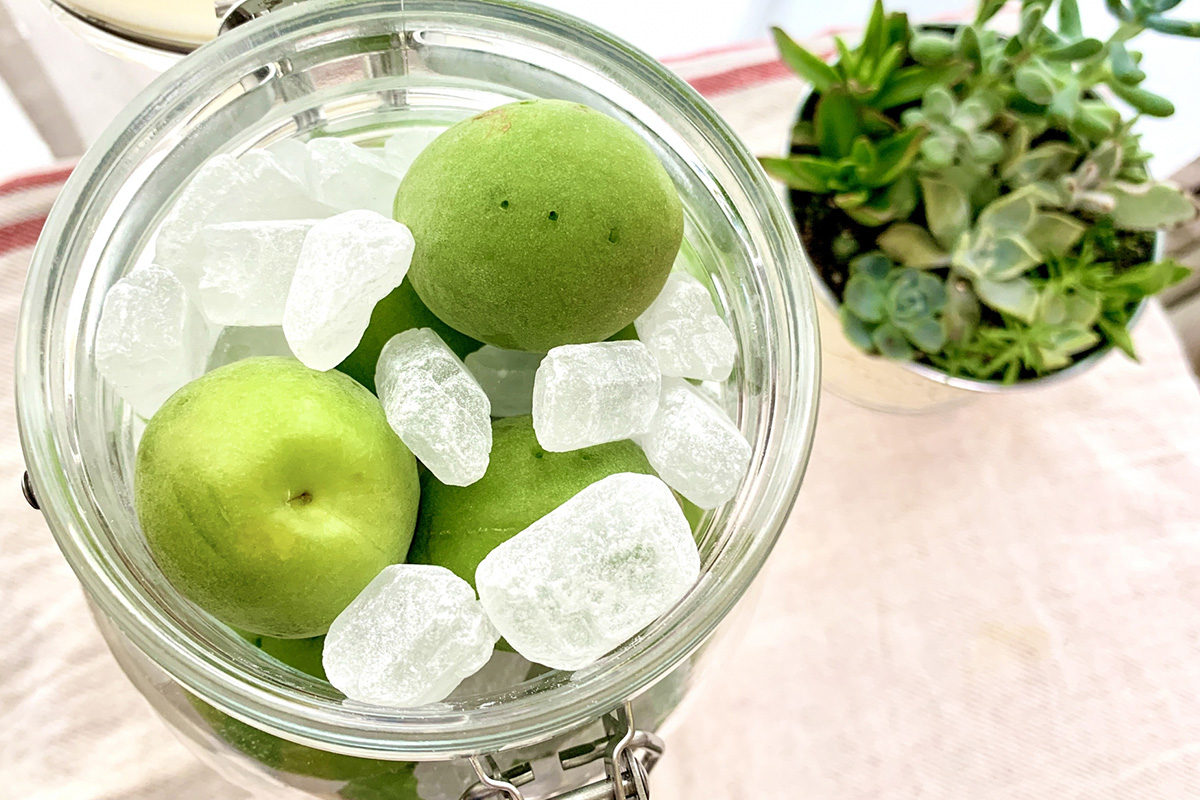
What do you enjoy in Japan during the rainy season?
During the rainy season, Japan is humid and dreary.
Some may say, “Isn’t it not so good for sightseeing?” However, there are some wonderful sightseeing spots that are only possible during the rainy season, so let me introduce them to you.
Ajisai(Hydrangeas) and Temples
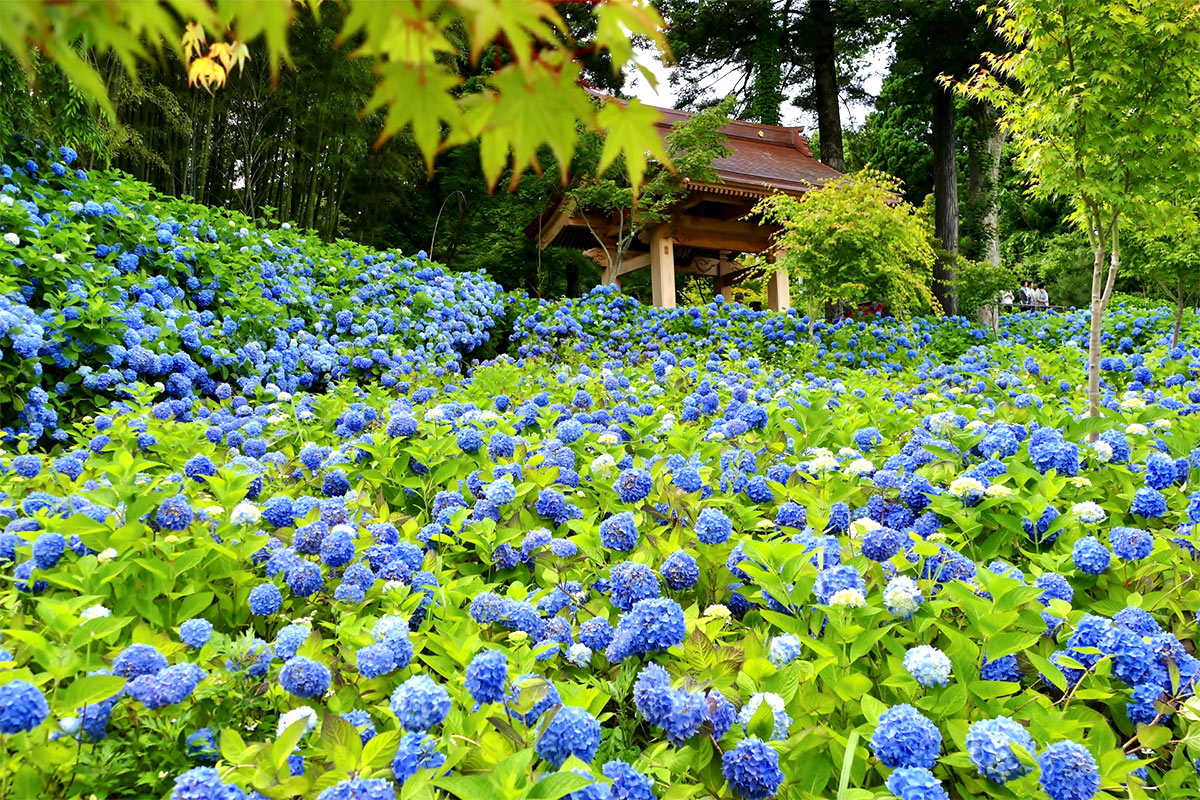
The best place to visit is the hydrangeas and temples.
Hydrangeas is called Ajisai in Japan.
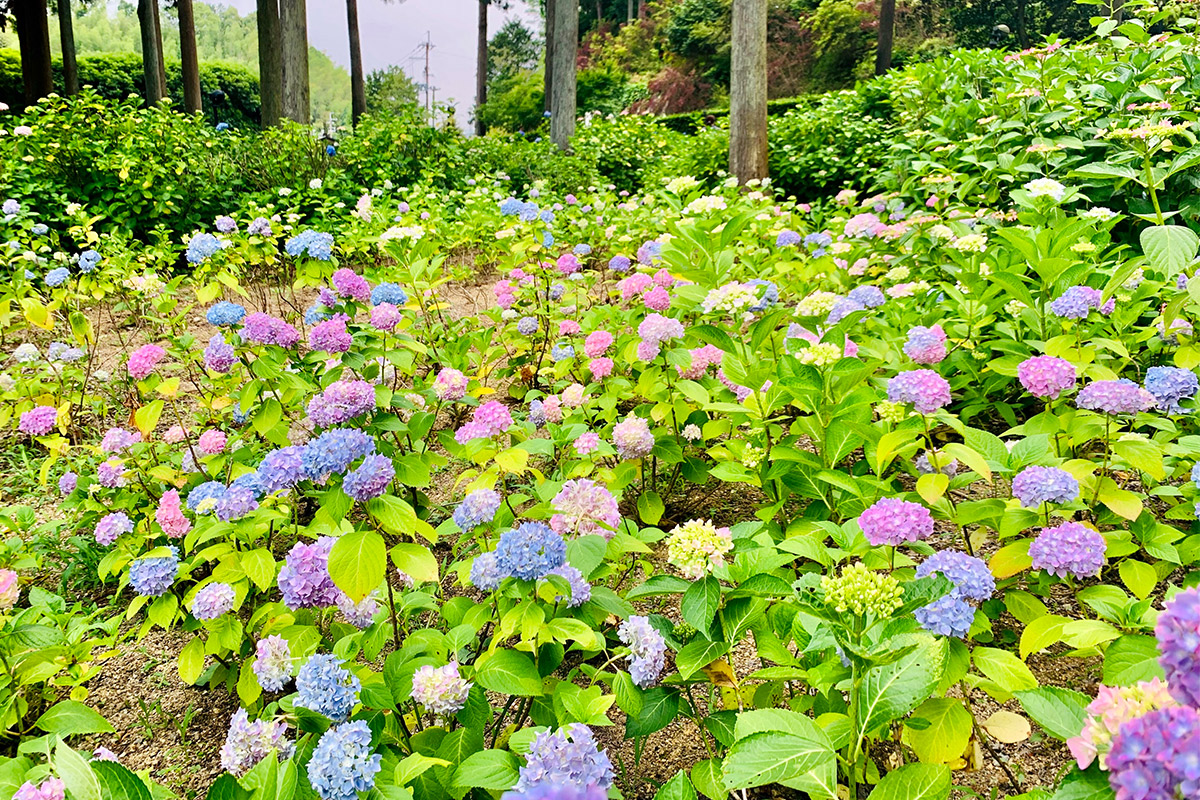
It is bright with various colors such as blue, pink, and purple. It is also beautiful wet in the rain.
See my past blog for recommended hydrangea spots, if you like.
Moss temple

Moss grows in the spring in the sunlight and is then transformed into a beautiful green color by the rainy season.
During the rainy season, green moss grows beautifully and the rain may create a mysterious atmosphere.
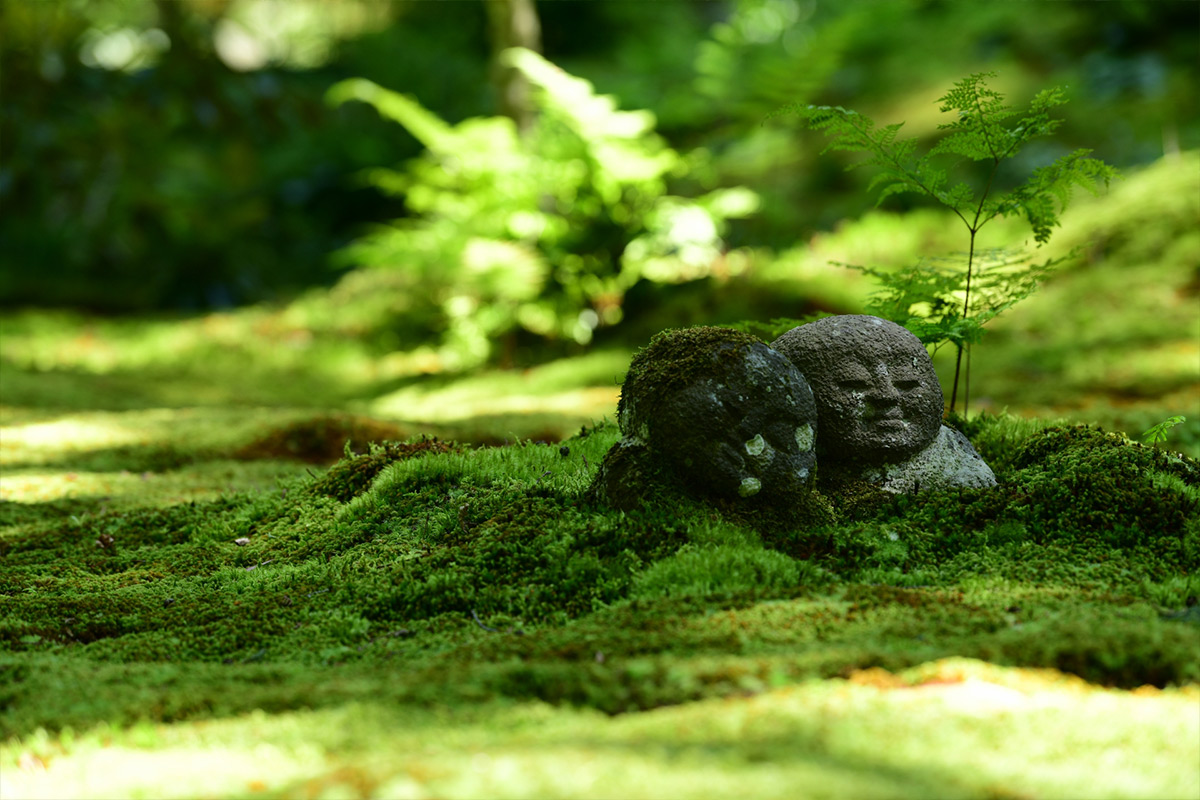
My recommendation for a moss temple is Sanzen-in Temple in Kyoto.
It is famous for its moss garden and adorable Jizo.Looking at it, it is kind of soothing to us as well.
Spend a relaxing time at a Farmer’s Minshuku
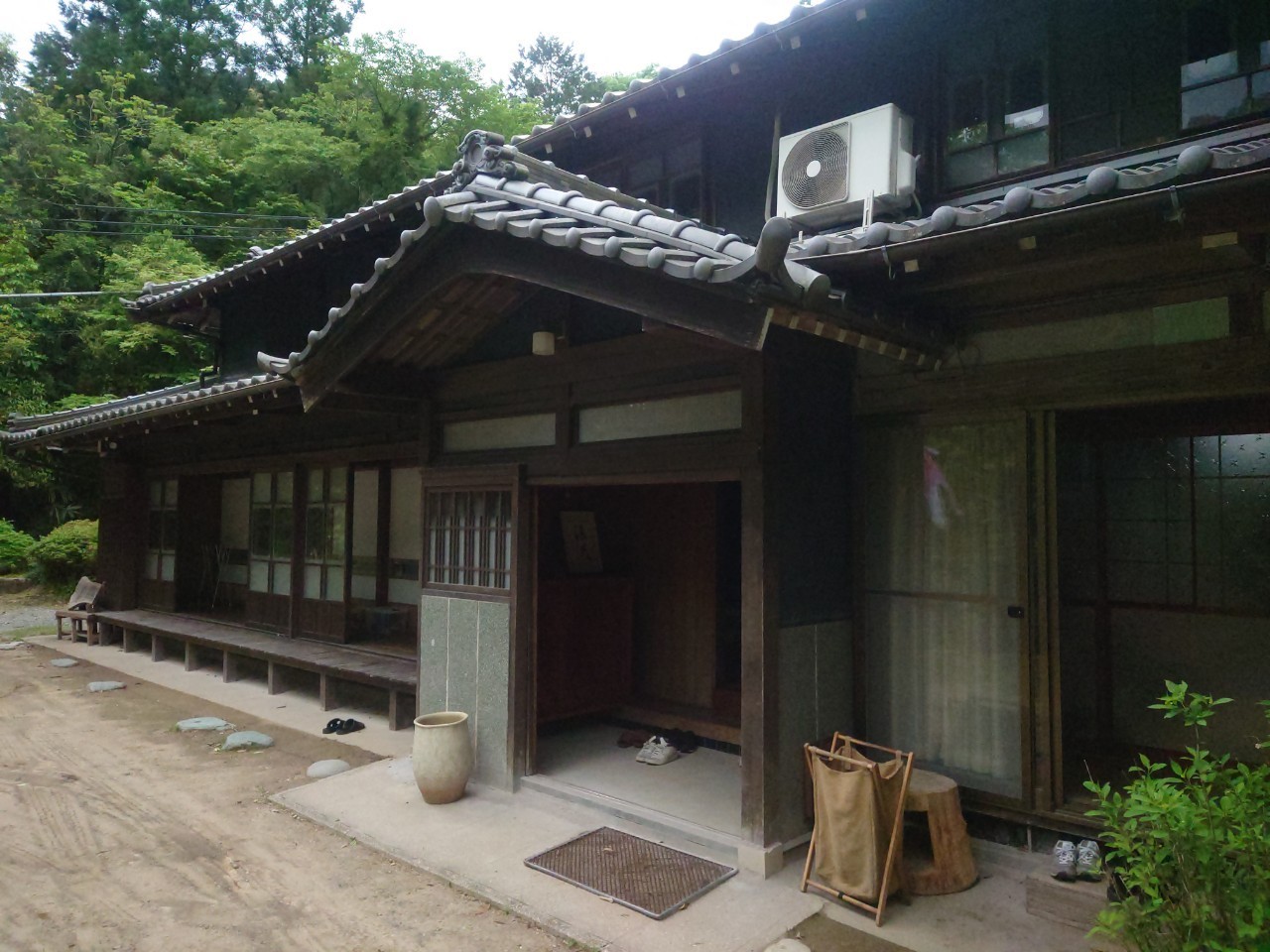
Japanese “Farmer’s Minshuku” offers an experience of an old Japanese dwelling.
*Minshuku is accommodations with mainly Japanese-style guest rooms.
Most of them are one-house-rental type, so you can spend a relaxing time with your family.
Japanese traditional houses have eaves.Sitting under the eaves of the roof, listening to the sound of rain, insects, and birds singing, it is also a wonderful way to slowly enjoy the original Japanese landscape!
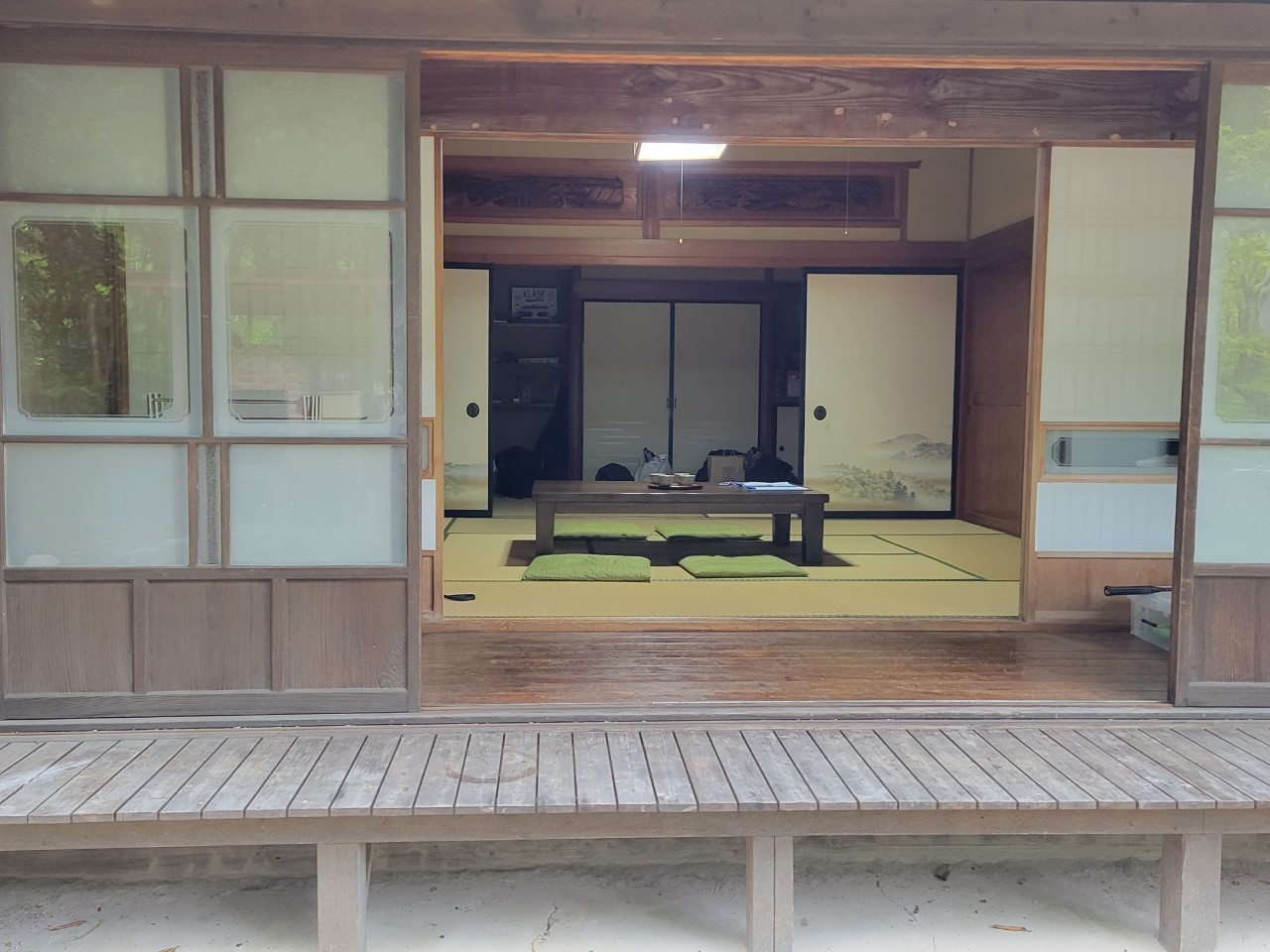
I wrote about Farmer’s Minshuku on my blog a long time ago, if you want to take a look.
Differences between Tsuyu(梅雨) and Samidare(五月雨)
My foreign friend asked, “What is Samidare?” so I will tell you the difference between Tsuyu and Samidare.
Samidare is written “五月雨” in kanji.The literal translation is May rain.五月 means May.
Tsuyu and Samidare both refer to rain, but in the Japanese sense, Tsuyu is the image of a long, continuous rain that falls all the way in June.Samidare, on the other hand, is associated with intermittent on and off rain.
Samidare is also used in everyday conversation.
For example, when you say, “I will answer your questions one after another”.
In Japanese, we say, “五月雨で回答します(Samidare de kaitou shimasu)”.
*de is a conjunction, kaitou means answer, and shimasu means to do.
Difference between Tsuyu(梅雨) and Bai-u zensen(梅雨前線)
Now, this kanji(梅雨), which reads Tsuyu, is actually read as Baiu zensen(梅雨前線) when the word Zensen is added after it.
Baiu zensen is the literal translation of the term: rainy season front.Meteorological Terms.
Why are there different readings of Kanji?
This is because these two terms have different origins.
“Tsuyu” came from Chinese characters.In Japan, it is now called “Baiu”.So there are two ways to read “梅雨”.
And each word is read differently depending on the “next word”.
If the next word is kun-yomi, the previous word is also kun-yomi. If the next word is “kun-yomi”, the previous word is also “on-yomi”.
Zensen is a phonetic reading, so the word that precedes it is also a phonetic reading. Tsuyu is a kun reading.I will introduce the difference between the on reading and the kun reading sometime later! Japanese is so difficult.
It was kind of difficult to talk about. Japanese language is really difficult!
During the Tsuyu season, I have the impression that there are somewhat fewer Japanese tourists because of the rain and the fact that May was a major holiday weekend.Perhaps there are some tourist attractions that are open.
If you go sightseeing this time of year, please let us know where you went on Facebook, etc., if you like!




